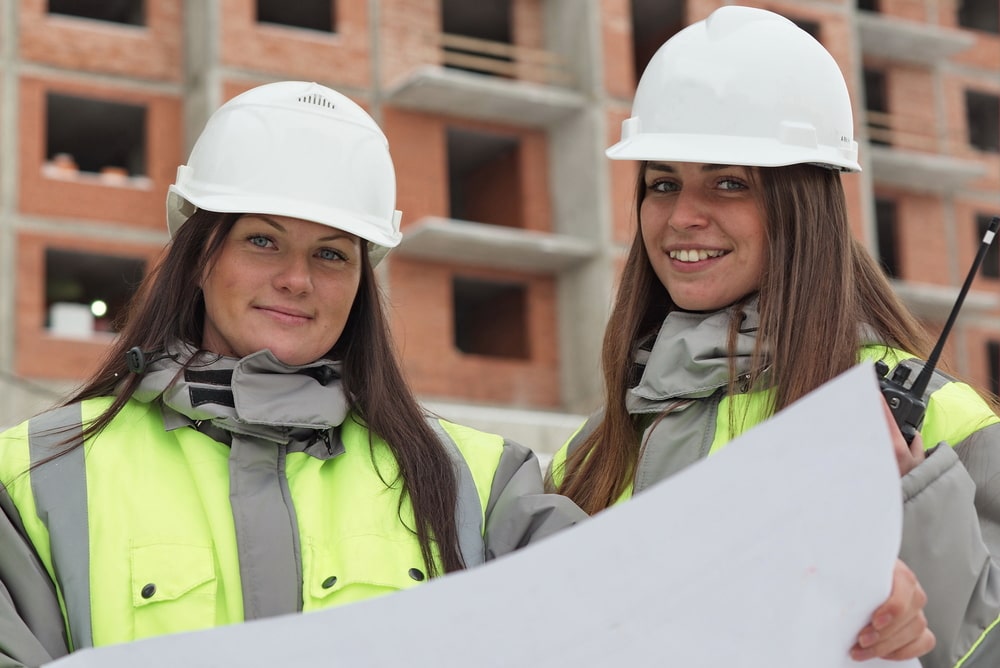Sector - Education & Training
Women in demolition

In this blog, Patricia Sloneczny, Development Director at AR Demolition, talks to us about being a woman in the world of demolition and construction.

Patricia Sloneczny
Patricia is responsible for incorporating the company’s distinctive ways of operating – pioneering, sustainable and inclusive – into building sustained profitable growth through client relationships, innovation and professionalism. In July 2018 the company was named in the London Stock Exchange Group’s annual report on 1,000 Companies to Inspire Britain.
For me, she says, being a woman in the demolition industry isn’t about political correctness or social justice. It’s hardly even a gender rights issue. It’s about helping our industry meet the challenges of the 21st Century, as we face a major skills shortage and a need to adapt to changing cultural values.
Clearly there are some aspects of our industry which will always be more suited to men than to women. I’m not even looking for women to make up half of the construction workforce just because we constitute 50% of the labour market.
We know that there’s a major shortage in construction generally and demolition is certainly no different in this respect. Can our industries afford to ignore the unlocked potential in the female population?
A recent House of Commons briefing paper suggested that just one in seven jobs in construction generally are held by women. In demolition specifically, it’s hard to be precise because of lack of data (more on that later). But I happen to know that of more than 400 members of the Institute of Demolition Engineers, just 12 are female.
So we must do all we can to ensure we remove barriers to encouraging girls and women to explore careers in our sector.
I believe it’s the culture – and the perception of it – which needs changing.
I recently attended an industry event which is part of a campaign to empower women with the knowledge and confidence they need to eventually advance into senior positions in the construction sector.
What was fascinating about the meeting was sitting around a table and listening to the stories from delegates about their experiences.
From the discussions it was evident just how debilitating the loneliness and resulting lack of confidence felt by women in construction can be.
I count myself very fortunate to be working for a company, in AR Demolition, which is progressive, modern and which values my expertise and opinions at board level.
The challenges women face range – from the having the confidence to speak up and be heard in a predominantly male boardroom, to casual on-site put downs and everyday sexism which may be considered harmless by perpetrators – can chip away at their sense of self-worth.
However most of the women I spoke to were in it for the long haul and determined to make a difference to the gender disparity in the construction industry. It’s part of our mission is to encourage and inspire the next generation of both men and women to look down the lens a different way.
Of course, the industry itself can put systems and measures in place to ensure women are encouraged to become involved in demolition and construction generally.
I’m currently half way through a Masters Degree in Demolition. As part of it, I’m interested in reviewing what percentage of women are not choosing demolition specific careers and why. Using current literature and reports, can it be established that there are initiatives in place to ensure women are being informed about careers in demolition, recruited, educated to graduate level, trained at site level and then retained within the industry?
If not, what obstacles prevent women from seeking careers in the deconstruction sector and how can these difficulties be overcome?
As part of this analysis, it would be useful to know numbers of women in the various training options to get into the demolition industry. But data is hard to come by.
And this is a general point regarding demolition – specific data tends to be for construction only. I have tried The Office of National Statistics (ONS) for demolition-specific data only to be told they don’t publish figures at that level of detail.
It has proved almost impossible to obtain any data with relation to demolition and specifically any data that relates to diversity and gender.
Even when I did get something from the ONS, it was a combined figure for demolition and ground preparations (11 per cent women, incidentally – and I suspect the majority of those are in administrative roles). It’s a useful figure but something more specific is essential if we are to analyse the effectiveness of any campaigns, for example.
The problem here is that demolition is a very niche sector of the construction industry. It needs its own approach, run by its own governing bodies. But even the National Federation of Demolition Contractors has told me that that they currently have no gender related data to be able to access or assess.
So there’s clearly plenty of work to be done. Like I said before, I believe introducing women into the equation can have a really beneficial effect not on only demolition but in construction as a whole.
And we women would rather have support from our male colleagues in doing so, rather than feeling it’s a war we have to wage by ourselves.
If you would like to read more articles like this then please click here.
Related Articles
More Education & Training Features
- Immigration policy must serve Britain, not party politics – NFB
29 May 25
The Government has published a new White Paper which sets out major reforms to the UK’s immigration system.
- Moving beyond EDI to embed good employment
11 Apr 25
The benefits of EDI - higher retention, more productive teams, and healthy morale - are crucial.
- Universities fear government reforms will stifle construction sector demand for higher and degree apprenticeships
3 Apr 25
Industry fears forthcoming apprenticeship reforms will deter many construction firms from upskilling their workforce.






